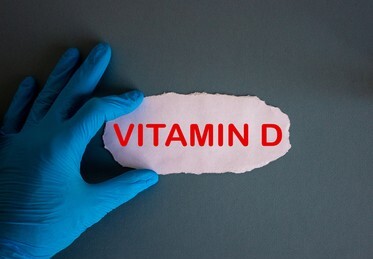
Vitamin D: All you wanted to know about it. Are you deficient in it? What is the test like?
What is Vitamin D?
Vitamin D is vital for strong bones. It also has important, emerging roles in immune function and cancer prevention. Deficiencies at any stage of life can have devastating consequences. Similarly, vitamin D toxicity resulting from overmedication can cause serious hypercalcemia. Vitamin D consists of 2 bioequivalent forms:
- Vitamin D2: obtained from vegetable sources (dietary sources, supplements);
- Vitamin D3: derived from both endogenous (synthesized from cholesterol through sun exposure) and exogenous (animal diet) sources.
Why do we need Vitamin D?
Sources of Vitamin D
How is Vitamin D Synthesized?
Deficiency of Vitamin D
Symptoms of bone pain and muscle weakness can mean you have a vitamin D deficiency. However, for many people, the symptoms are subtle. Yet, even without symptoms, too little vitamin D can pose health risks. Low blood levels of the vitamin have been associated with the following:
- Increased risk of death from cardiovascular disease
- Cognitive impairment in older adults
Causes of Vitamin Deficiency:-
If you are a pure vegetarian, then you are likely to suffer from vitamin d deficiency since most of the natural sources are animal-based, including fish and fish oils, egg yolks, cheese, fortified milk.
If your exposure to sunlight is limited then your body makes less vitamin D.
If your Kidneys cannot convert Vitamin D to its active form then you will be Vitamin D deficient.
As people age, their kidneys are able to convert less vitamin D to its active form, thus increasing their risk of vitamin D deficiency.
If your digestive tract cannot adequately absorb vitamin D.
Certain medical problems, including Crohn's disease, cystic fibrosis, and celiac disease, can affect your intestine's ability to absorb vitamin D from the food you eat.
Hypervitaminosis D:- Hypervitaminosis means excessive intake of vitamin D
Symptoms of Hypervitaminosis D:-
Excessive amounts of vitamin D in the body can cause calcium levels in the blood to rise. This can lead to a condition called hypercalcemia (too much calcium in your blood), which can cause a variety of symptoms, including:
- fatigue
- loss of appetite
- weight loss
- excessive thirst
- excessive urination
- dehydration
- constipation
- irritability, nervousness
- ringing in the ear (tinnitus)
- muscle weakness
- nausea, vomiting
- dizziness
- confusion, disorientation
- high blood pressure
- heart arrhythmias
- Longer-term complications of untreated
hypervitaminosis D include: - kidney stones
- kidney damage
- kidney failure
- excess bone loss
- calcification (hardening) or arteries and soft tissues
- increase blood calcium which can cause abnormal heart rhythms
Causes of Hypervitaminosis:-
It is unlikely that you would take in too much vitamin D from the foods you eat or from exposure to the sun. In most cases, this condition is caused by taking more than the recommended daily value of vitamin D supplements.
If you experience any of the above symptoms, then please consult your doctor and get yourself tested for Vitamin D.
In short, a Vitamin D test will help you to determine & monitor
- If bone weakness, bone malformation, or abnormal metabolism of calcium (reflected by abnormal calcium, phosphorus, PTH) is occurring as a result of a deficiency or excess of vitamin D
- People who are at high risk of deficiency, as recommended by the National Osteoporosis Foundation, the Institute of Medicine, and the Endocrine Society
- The effectiveness of the treatment when vitamin D, calcium, phosphorus, and/or magnesium supplementation is prescribed.